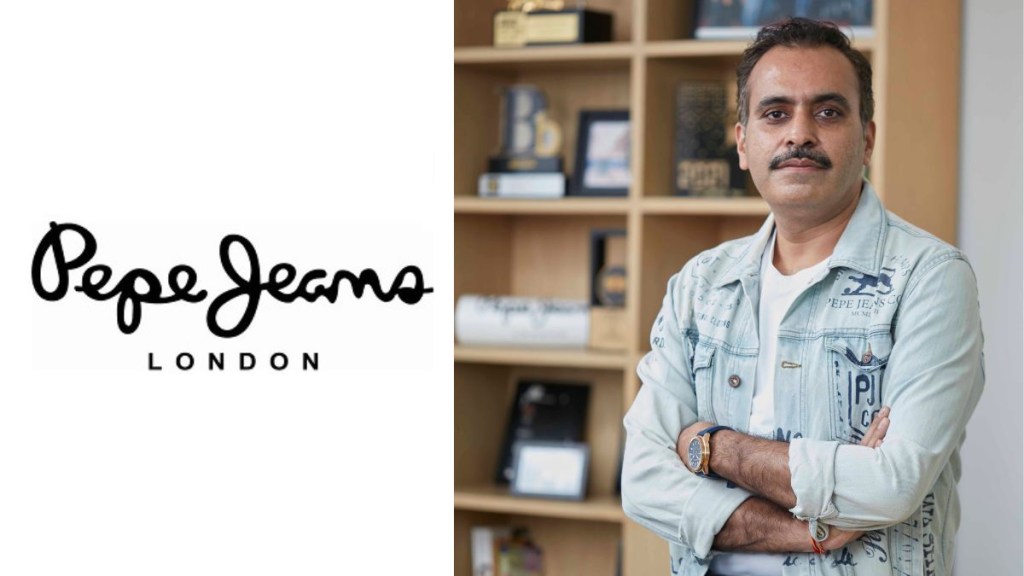Despite the Korean wave impacting fashion in Indian society, there are some brands which have continued with their ethos of sustainable fashion. “We are a London-British brand and that’s the spirit we want to convey, meaning we are not looking to change our DNA to go with the flow. However, we look for the right kind of association for the brand, be it in the name of music, sports, among others,” Manish Kapoor, MD and CEO, Pepe Jeans India told BrandWagon Online.
The global denim jeans market size was valued at $ 77.67 billion in 2022 and is expected to grow at a compound annual growth rate (CAGR) of 5.8% from 2023 to 2030, as per the marketing intelligence platform, Grand View Research. Additionally, the Indian denim market is booming at an average rate of eight to nine percent annually.
The company’s revenue from operations rose 54% to Rs 562 crore in FY23 from Rs 364 crore in FY22, as per the regulatory filings accessed by business intelligence platform, Tofler. Moreover, the company’s net profit grew 59% to Rs 20.86 crore in FY23 from Rs 13.09 in FY22. Interestingly, the company’s marketing spending and sales promotions increased 67% to Rs 40.28 crore in FY23 from Rs 24.19 in FY22. “We are focusing more on digital channels of advertising and for that we spend 60% of our advertising budget on the medium and the rest 40% on traditional mediums such as print and television. However, the one big change that we plan to implement in the coming two-three years is to increase spending on content creation. So, previously seven to eight percent of the budget was allocated to content creation which will now increase to 15-18%,” Kapoor explained.
The company which sells pairs of denims at an average ticket price of Rs 4,200 further claimed that metro and tier-1 cities account for 70% of its revenue while the remaining 30% comes from tier-2 and tier-3 cities. Meanwhile, the revenue split ratio between the company’s D2C platform, retail outlets and e-commerce stand at four percent, 25% and 21%, respectively, the company claimed. “The remaining 50% of the revenue comes from large format stores and distribution to multi-brand stores,” Kapoor claimed. He further pointed out that among various e-commerce platforms, Flipkart and Myntra, perform best for the brand. Moreover, the brand which targets consumers between the age group of 18-50 years claims that 80% of its customers are male with denims being their best-selling category.
Interestingly, the company aims to clock gross sales of Rs 2,000 crore along with a retail expansion of 100 new stores by 2027. “Last financial year, we were at Rs 1,150 crore in terms of consumer sales and this year we will close the sales around Rs 1,450 crore. Thus, we are on track of making Rs 2000 crore sales by 2027,” Kapoor said. Moreover, the company aims to further expand in tier-2 and tier-3 cities as two in every three new stores are being opened in small towns. “For instance, we opened one new store in Borivali this month but at the same time, we inaugurated two stores in a town like Ranchi. In terms of high streets and malls, we will have an equal split of new stores. Going forward, it will be 50-50 between metros, tier-1 cities and tier-2, tier-3 cities, in the next three years,” Kapoor exclaimed.
The company which aims to grow at a CAGR (compound annual growth rate) of 15-18% in the next three years has planned to foray into the footwear category. “In the coming times, we are going to focus on the ladies segment and overall footwear line as we plan to introduce an India-made footwear line in May. We have already done a test marketing for the footwear line with products imported from Vietnam and China. Now, we have Indianised the supply chain,” Kapoor pointed.
Earlier this month, Pepe Jeans entered into a partnership with the Red Bull Academy for Formula 1. Additionally, the brand is the title sponsor of F1 Academy team, the ladies’ team. “Around August, we will launch our Red Bull racing line,” he said.
